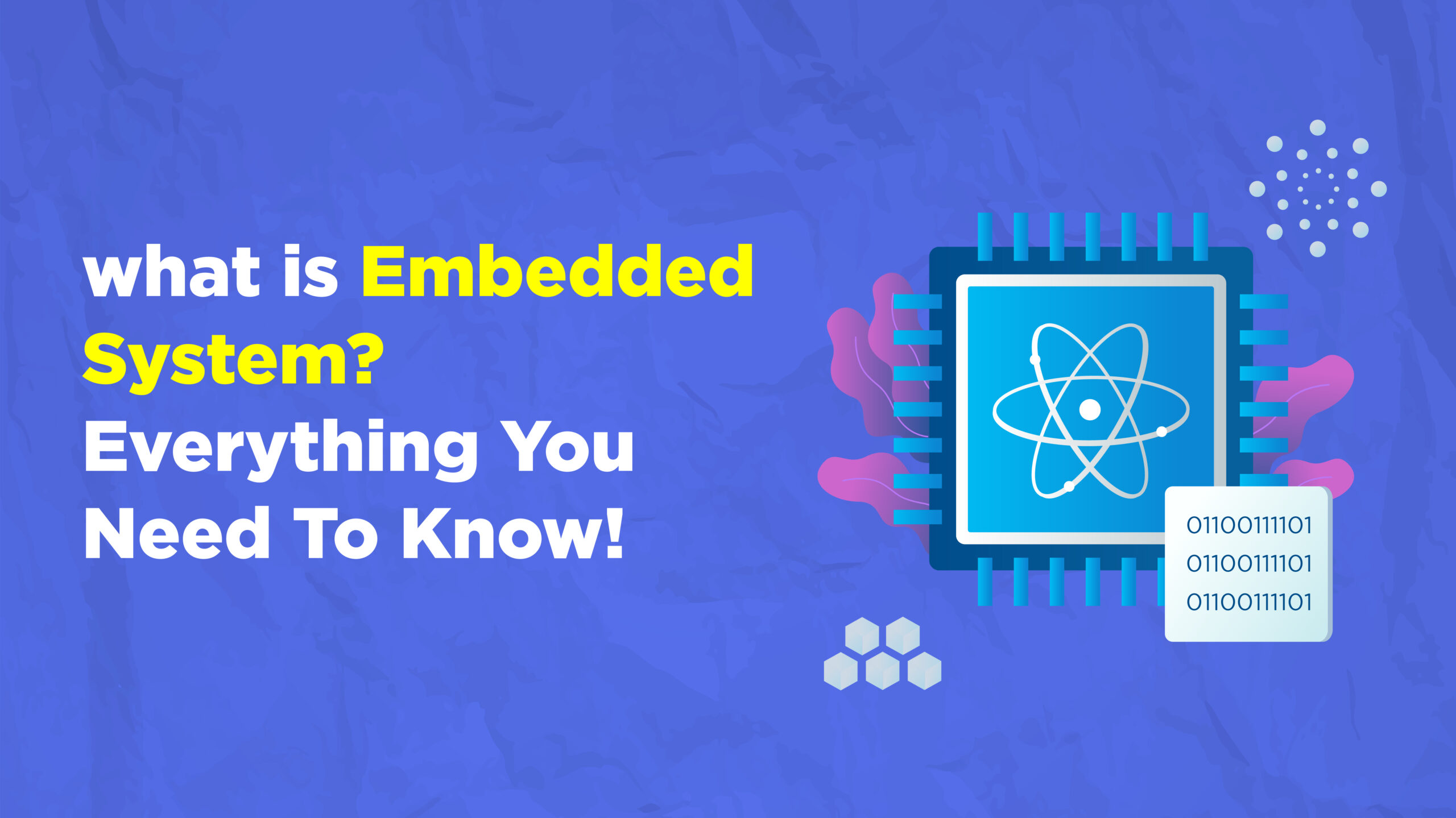What is Embedded System? – Everything You Need To Know
The world we inhabit is teeming with intelligent devices, from the self-driving revolution on our roads to the meticulously controlled comfort of smart thermostats in our homes. These marvels are powered by the invisible magic of embedded systems – tiny computers intricately designed to perform specific tasks with unwavering focus. Unlike your general-purpose laptop juggling multiple programs, embedded systems excel at a single critical function, be it controlling a washing machine’s spin cycle (think precise motor control algorithms) or keeping a pacemaker ticking faithfully (demanding real-time reliability). Embedded Systems: A Realm of Power and Possibility The embedded systems market is projected to reach a staggering $236.5 billion by 2025 According to Grand View Research. Their applications span a vast array of industries, silently shaping our daily lives: Automotive: Engine control units (ECUs) manage complex engine functions, ensuring optimal performance and fuel efficiency. Medical: Pacemakers rely on embedded systems to regulate heartbeats, while advanced medical imaging equipment utilizes them for real-time data processing. Aerospace: Flight control systems employ embedded systems for precise navigation and maneuverability, keeping us safe in the skies. Consumer Electronics: From the intricate power management in smartphones to the image processing within digital cameras, embedded systems are omnipresent. Your Embedded Systems Journey: A Step-by-Step Guide Intrigued by the prospect of shaping the future through these intelligent devices? Here’s your roadmap to a fulfilling career in embedded systems: Get a Strong Foundation: Electrical Engineering or Computer Science: A solid grounding in these fields equips you with the fundamental knowledge of digital logic, circuits, and programming languages like C. Understanding how data flows through circuits and how to manipulate it using code is paramount. Programming Prowess: Mastering C: This language reigns supreme in the embedded systems domain. Get into concepts like memory management (ensuring efficient allocation of limited resources) and bit manipulation (controlling individual bits within data for precise hardware interaction). Microcontroller Marvels: Hands-on Learning: Popular platforms like Arduino or ARM Cortex-M provide excellent playgrounds for experimentation. These microcontrollers are the workhorses of embedded systems, executing your code and interacting with the physical world. Write code, upload it to your development board, and witness the magic of hardware responding to your software commands. Real-Time Operating Systems (RTOS): Tasks with Precision: As your projects grow in complexity, you’ll encounter RTOSes. These specialized operating systems act like maestros, scheduling tasks within the system to ensure smooth operation and real-time response. Imagine a washing machine – the RTOS ensures the water pump activates before the spin cycle begins, not the other way around! Lifelong Learning: The Future: The field of embedded systems is constantly evolving. Stay ahead of the curve by exploring cutting-edge technologies like the Internet of Things (IoT), where embedded systems connect and exchange data, and low-power design, is crucial for battery-powered devices. Network and Collaborate: Connect with fellow enthusiasts online through forums and communities like Stack Exchange and Reddit. Share knowledge, ask questions, and foster a spirit of collaboration in your learning journey. Online Courses: Platforms like Skolar offer a wealth of embedded systems courses from top universities, providing in-depth knowledge delivered by industry experts. Development Boards: Affordable and user-friendly options like Arduino and Raspberry Pi are perfect for beginners to experiment with hardware and software interaction. Debuggers and Logic Analyzers: As your projects become more complex, these tools become invaluable for troubleshooting and pinpointing errors within your code and hardware interactions. Sharpening Your Expertise: The Path to Mastery As you gain experience in the field, focus on honing these valuable skills: Debugging Prowess: Develop a systematic approach to debugging. Utilize tools like logic analyzers and debuggers to isolate and rectify errors efficiently. Remember, even the most experienced embedded systems engineers encounter bugs – the key is to identify and fix them quickly! Resource Optimization: Embedded systems often operate with limited resources, especially memory and processing power. Learn to write efficient code, optimizing for speed and memory usage. Every byte counts! Techniques like compiler optimization and data structure selection can significantly improve your code’s performance. Creative Problem-Solving: Don’t be afraid to challenge yourself! Embedded systems are basically mini-computers everywhere, from phones to smart fridges. The coolest part? They’re wide open for fresh ideas. Want to build something awesome? Let’s ditch the usual and create solutions that blow minds. Think super-powered gadgets with new hardware and wireless connections like Bluetooth or Wi-Fi. The possibilities are endless! So go wild, experiment, and break the mold. With your unique way of thinking, you could create something that changes the game entirely. Real-time Systems: Embedded systems often operate in real-time, meaning deadlines for tasks are critical. Understanding real-time scheduling algorithms and ensuring timely execution of code becomes paramount. Hardware-Software Co-design: In complex embedded systems, hardware and software are designed and developed in tandem. This ensures optimal performance and resource utilization. Embedded Security: With the rise of connected devices (IoT), security has become a major concern. Learn about security protocols and best practices for protecting embedded systems from cyberattacks. Low-Power Design: Battery-powered devices require careful consideration of power consumption. Explore techniques like low-power hardware components and power-efficient coding practices to extend battery life. The Future World Shaped by Embedded Systems The world of embedded systems, those little computers that power everything from cars to medical gadgets, is about to get a whole lot smarter. Here’s the gist: AI and machine learning, the tech behind self-driving cars and fancy medical treatments, are joining forces with these mini-machines. This means our devices are about to learn and adapt like never before. Imagine cars that get better at driving themselves with every mile, or medical devices that fine-tune treatments based on what’s happening with you right now. Pretty cool, huh? Buckle up, because the future of smart devices is about to get wild! Are You Ready to Join the Embedded Systems Revolution? Here’s the exciting part: YOU can be the one who programs these tiny powerhouses! Whether you’re an electrical engineering whiz or a coding champion, there’s a … Read more

